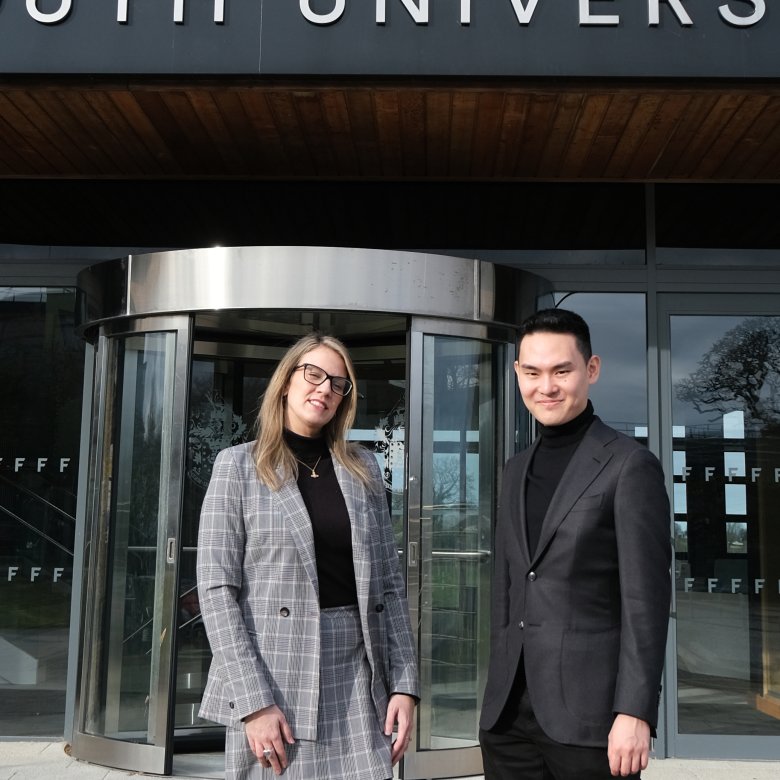Entrepreneur stories: SpaceforU
23 March 2023

Lauren Packham and Masayuki Kishi joined Launchpad in September 2022. They are the founders of SpaceforU, an online event venue booking platform.
What led you to start working on your idea?
SpaceforU is designed to help young community organisers and entrepreneurs start their own events or classes. Organising your first event is daunting; it takes courage to enquire to venues, it takes prior experience to know what information you need, the information is often not provided upfront, and it can take weeks of work to confirm the booking. We both had prior experience of organising events and starting businesses before we came to Launchpad, so this pain point felt very familiar.
We also wanted to help the venues that often go above and beyond to make events work and help them generate more business.
How did you get the platform off the ground?
Lauren first got some recognition for SpaceforU’s business idea when it won the Techstars Startup Weekend hosted by Launchpad in September 2022. Shortly after Masa joined the team and SpaceforU officially became incubated at Launchpad.
SpaceforU at Techstars was a slightly different concept; it was an online marketplace for hot-desking. While the idea garnered lots of interest, each desk had only an hourly price of a few pounds. This meant we needed commissions on hundreds of desks being rented regularly to sustain the company. We found that we weren’t equipped to generate sales at that scale just yet, so pivoted to wellness spaces that were priced much higher. This meant we can make enough money with fewer sales.
How have you been reaching out to your users and what are their reactions?
Lauren runs a CIC specialising in wellness events in Plymouth, so we started there. She was already actively renting spaces for her wellness events so this meant we already had personal relationships with some venues in Plymouth. We also tapped into her connections to wellness practitioners to make our first sale.
The first month was spent listening to the venues, finding out their pain points and optimising the listing process. The first venues were the hardest to onboard but once we had a few listings, we managed to get 17 venues to partner with us with over 40 spaces listed. We also got 65 users signed up and by the second month we had our first bookings start to trickle in.
What is the focus for you over the next few months?
Now that we’ve had some validation of the idea from venues and renters, we’re now focusing on how we can grow our sales.
We are actively looking for ways we can connect with the local community; our immediate focus is to find out what we can do for the students at Falmouth and Exeter on our campus as well as Plymouth University. We want to make it easier to rent out local venues for the Student Union and societies as well as students on events courses.
We would also like to engage with local companies in Falmouth and Plymouth to see if we can help improve their staff wellbeing by organising retreats and wellness sessions using local venues and practitioners.
Tell us about your start-up journey, what have been the highs and lows so far?
Peer-to-peer marketplaces are notoriously difficult to start – it’s a classic chicken and egg problem. Without venues we have nothing to sell and without users, it’s difficult to get venues onboard. Convincing our first venues to list with us was a super tough sell, especially when our marketplace had no listings. But now that we have a lot of listings, we’re very happy to see venues list their spaces on their own without us reaching out to them. We’re also starting to see more spaces being rented on our platform, so we’re determined to continue to fuel that growth going forward and provide more value to the community we’re serving.
We’ve experienced that it’s especially difficult to start a business on your own; there are a lot of skills involved. It takes courage to take the first steps to reach out to the first customers and start building the minimum viable product.
What advice would you give to someone thinking of starting their own venture?
- Find your community and listen to what you can do for them
- Find out how you can leverage your skills and experience to provide value
- Knock on lots of doors, the next door you knock on might just reveal the person you need the most




